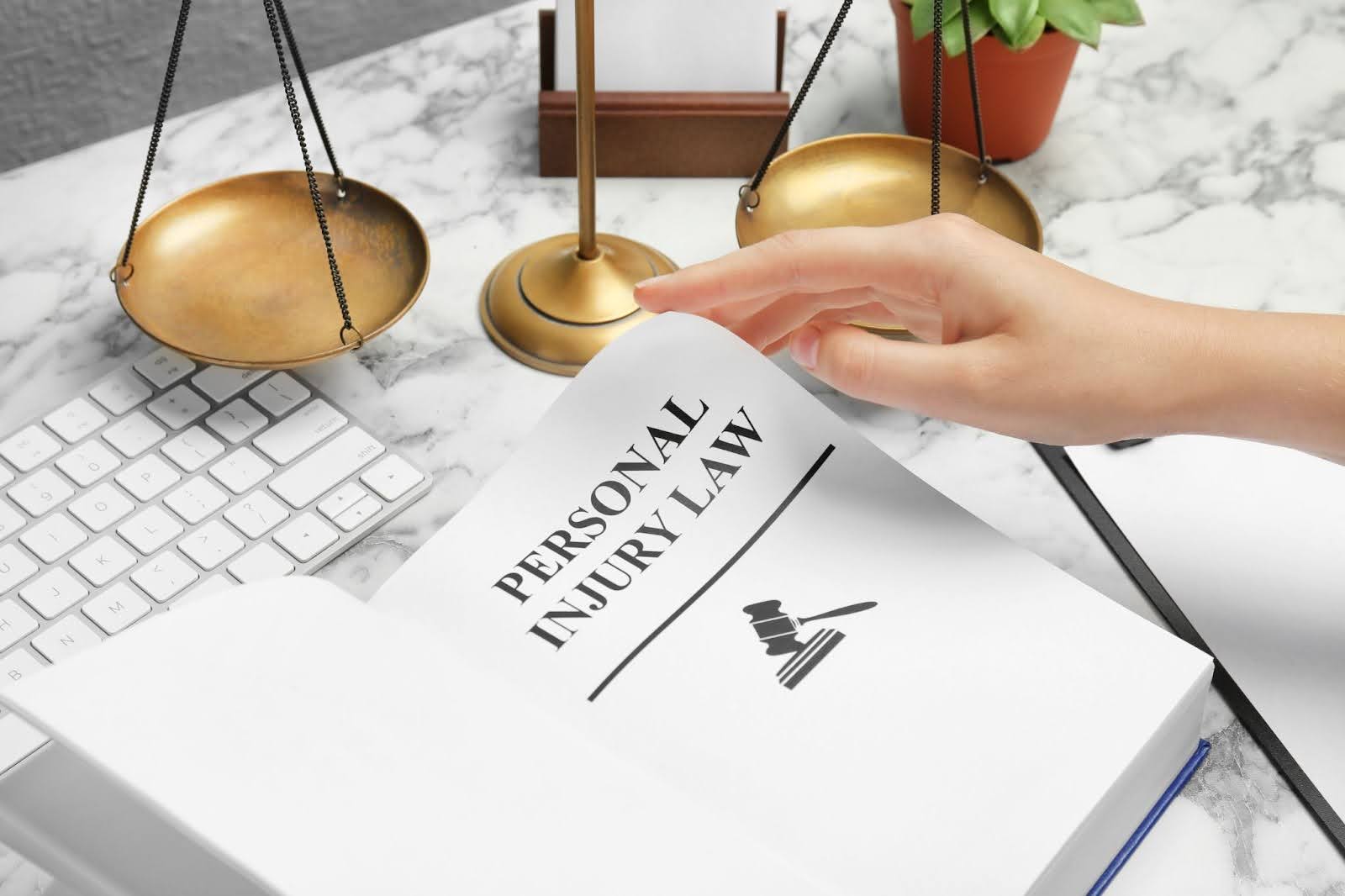Understanding the differences between personal injury and property damage claims is crucial for anyone involved in an accident. While both types of claims can arise from the same incident, such as a car crash or slip and fall, they address entirely different aspects of loss and are handled in distinct ways. Personal injury claims focus on harm suffered by a person, including physical, emotional, and psychological damage. Property damage claims, on the other hand, deal with the destruction or impairment of physical belongings, such as vehicles, personal items, or buildings. Knowing how to navigate each type of claim can affect your financial recovery and legal options. This article explores both claims in depth, highlighting how they work, what they cover, and how legal representation can help. Whether you’re facing injury, property damage, or both, the information below will help clarify your path toward fair compensation.
Defining a Personal Injury Claim
A personal injury claim refers to the legal process by which an individual seeks compensation for injuries sustained due to someone else’s negligence or wrongdoing. These injuries can range from minor cuts and bruises to life-altering conditions like spinal cord injuries or traumatic brain injuries. Emotional and psychological effects, such as anxiety or PTSD, may also be included in such a claim.
The foundation of any personal injury claim lies in proving negligence. To win compensation, the injured party must demonstrate that the defendant owed a duty of care, breached that duty, and caused the injury through their actions or inactions. Evidence such as medical reports, witness testimonies, and expert opinions are used to establish this chain of responsibility.
Personal injury claims often involve a wide variety of situations, including car accidents, workplace injuries, medical malpractice, and slip-and-fall incidents. The compensation sought can include medical expenses, lost wages, pain and suffering, and long-term care costs. Because these cases can quickly become complex, individuals frequently turn to experienced legal professionals to manage the claims process and advocate on their behalf.
Understanding Property Damage Claims
Property damage claims involve seeking compensation for physical items that have been harmed or destroyed as a result of someone else’s negligence. This can include everything from damaged vehicles in car accidents to ruined personal belongings in a house fire. Unlike personal injury claims, property damage does not involve harm to a person but rather to their possessions.
The claim process generally begins with assessing the value of the damaged property and identifying how the damage occurred. For instance, after a car accident, photos of the vehicle, police reports, and repair estimates may be submitted to support the claim. The insurance adjuster will use this information to determine how much compensation is owed.
In property damage claims, the financial compensation is typically based on either the cost of repairs or the fair market value of the item before it was damaged. There may also be additional compensation for loss of use, such as car rental expenses while a damaged vehicle is being repaired.
These claims are usually settled through insurance companies, although legal intervention might be necessary if there are disputes over fault or compensation value. While they may seem more straightforward than personal injury claims, property damage cases can also involve complex negotiations and legal technicalities.
Key Differences Between Personal Injury and Property Damage Claims
While both personal injury and property damage claims often stem from the same incident, their legal treatment, compensation structures, and evidence requirements are significantly different. One of the most noticeable differences lies in the type of harm addressed. Personal injury claims focus on bodily and emotional harm, while property damage claims concern loss or damage to physical items.
Another key difference is the type of evidence required. Personal injury cases rely heavily on medical documentation, expert witness testimony, and records of physical and emotional suffering. Property damage claims, on the other hand, involve photographs, repair estimates, and valuation of the items affected.
The timelines also tend to differ. Personal injury claims can take longer due to medical treatment and recovery periods, while property damage cases may resolve more quickly since the damages are easier to calculate and verify.
In terms of compensation, personal injury settlements can be more varied and potentially higher because they may include pain and suffering or long-term care. Property damage compensation is generally more limited and directly tied to the item’s value or repair costs.
Legal Strategies and the Role of Insurance Companies
Insurance companies play a central role in both personal injury and property damage claims. However, the approach they take in handling these cases can differ. For property damage, insurance adjusters often use market data and repair estimates to quickly settle the claim. Personal injury claims, however, often involve more negotiation due to the subjective nature of pain, suffering, and long-term medical needs.
When dealing with insurance companies, it’s important to understand that their primary goal is to minimize payouts. In both types of claims, insurers might try to dispute the value of damages or question who was at fault. This is why legal representation can make a significant difference.
A skilled attorney can evaluate the total extent of your damages, negotiate effectively with insurance companies, and push for the maximum compensation allowed by law. They can also help you navigate confusing policy language and protect your rights throughout the process.
For example, if you’re filing a claim after a car accident, a Personal Injury Lawyer in Coral Springs, FL can ensure that both your medical needs and vehicle repairs are addressed fairly under the law, maximizing your recovery for both personal and property damages.
Filing Claims Separately or Together
One of the most strategic decisions accident victims must make is whether to file personal injury and property damage claims separately or together. Depending on the situation and the jurisdiction, there may be benefits to combining both claims under one legal action or insurance process.
If the incident is straightforward, like a minor car accident with minor injuries and light vehicle damage, combining the claims can speed up resolution. However, in cases with serious injury or complex liability questions, separating the claims can allow more time to fully document injuries while resolving property damage more quickly.
In some states, the statute of limitations may vary between personal injury and property damage claims. This means you might have more or less time to file each claim, so being aware of these differences can help you make informed decisions.
Having a lawyer who understands both personal injury and property damage law can ensure that your case is handled strategically, with the right timing and documentation to support each component of your claim.
Court Procedures and Settlement Options
If your case cannot be settled through negotiation or insurance processes, you may have to take it to court. The court procedures for personal injury and property damage claims follow civil litigation processes, but the focus of evidence and arguments will differ.
In personal injury court cases, testimony from medical professionals, rehabilitation experts, and even psychologists may be presented to show the full extent of suffering and loss. For property damage, appraisers or contractors might testify about the cost to repair or replace items.
Settlements are more common than trials in both types of claims. Courts often encourage both parties to reach a resolution before a full hearing. A strong legal team will negotiate settlements that consider all present and future losses for personal injury and all applicable reimbursements for property damage.
Timing is also a key concern. Personal injury cases may take months or even years to resolve, especially if the injuries require ongoing treatment. Property damage claims tend to move faster, but delays can still occur if fault is contested.
Common Scenarios Involving Both Claims
Many accidents give rise to both personal injury and property damage claims. Car accidents are the most common example. A collision can result in vehicle damage as well as physical injuries like whiplash, broken bones, or more serious trauma.
Natural disasters, such as fires or floods, might also involve both types of claims. A house fire could destroy property and also cause smoke inhalation injuries or emotional trauma, especially for children or the elderly.
Another example is workplace accidents. A piece of faulty equipment may damage a worker’s personal belongings and cause bodily harm. In such cases, coordinating both claims effectively can lead to a more comprehensive recovery.
Understanding the scope of your situation is key to making informed decisions. Speaking with an attorney early in the process can help determine how to handle multiple claims and avoid delays or reduced compensation due to conflicting evidence or missed deadlines.
Knowing When to Get Legal Help
While minor property damage can sometimes be resolved directly with an insurance company, more serious claims—especially those involving injury—should prompt legal consultation. Even seemingly simple incidents can have underlying complexities that affect your ability to recover fair compensation.
Legal professionals understand how to gather evidence, build a strong case, and deal with insurance companies that are trained to minimize payouts. A lawyer can also advise you on when to settle and when to pursue litigation, ensuring you don’t walk away with less than you deserve.
In cases where both personal injury and property damage are involved, legal assistance becomes even more crucial. Coordinating claims, understanding how different laws apply, and knowing the real value of your losses all require experienced guidance.
Whether you’ve been in a car accident, suffered injury due to negligence, or lost property in an unexpected event, speaking with a personal injury lawyer will clarify your rights and next steps.
If you’ve been hurt in an accident and are also dealing with property damage, it’s important to get trusted legal advice from someone who understands the full scope of your situation.
If you’ve suffered an injury in an accident, working with a legal team that understands both personal and property damage claims is essential. At Bacchus Law Firm, we provide skilled and compassionate representation for those navigating these challenges. Our Personal Injury Lawyer in Coral Springs, FL is committed to securing fair compensation for all aspects of your case—from medical bills to damaged belongings. You can trust us to handle every detail and advocate for your rights at every turn. Let us help you pursue justice and peace of mind.






